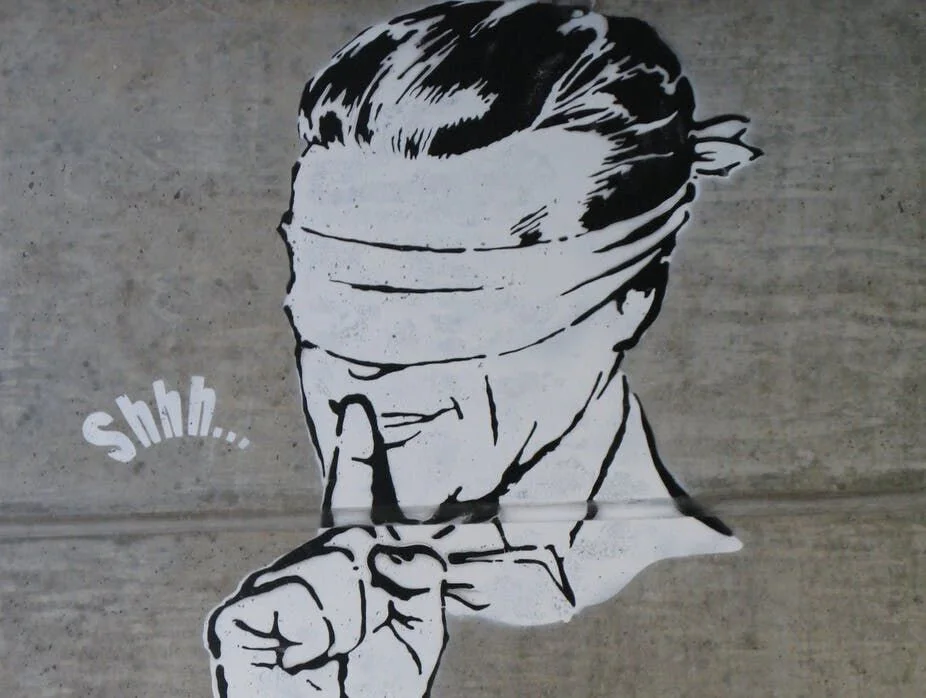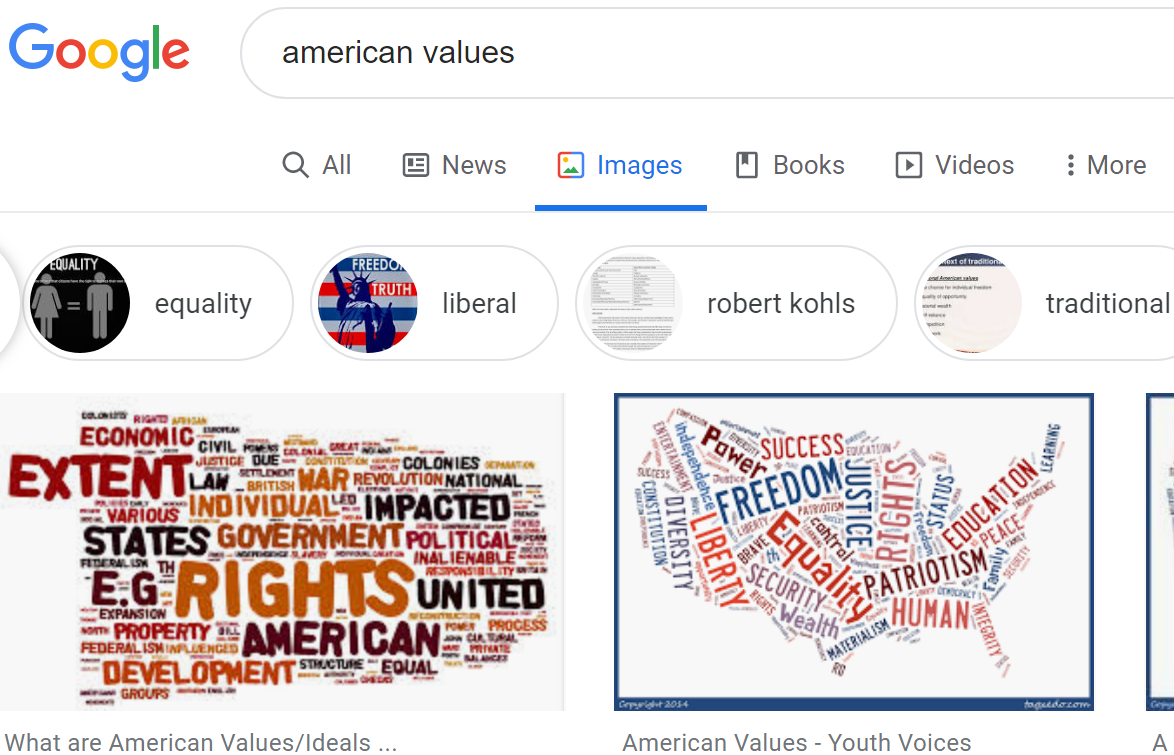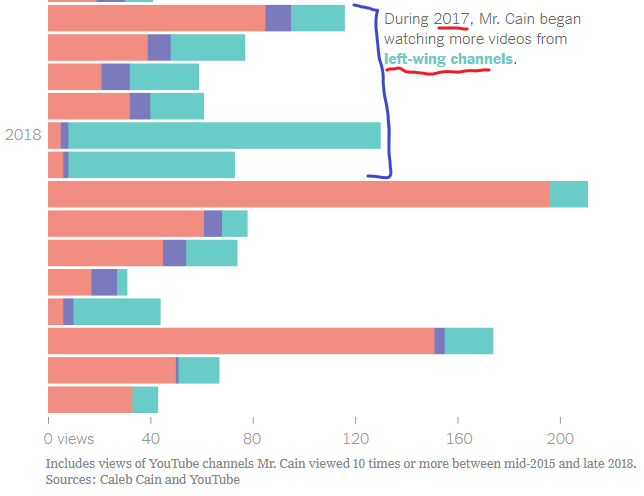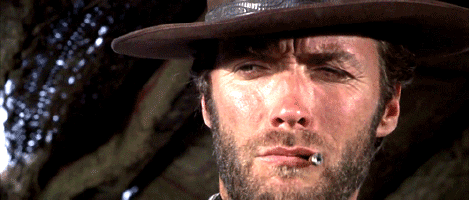Why YouTube, Google, Facebook, Twitter, & Reddit Need to Stand Against Intersectional Extremism
Note: This is my best crack at Steelmanning Censorship as a broad concept, based on lively conversation with friends in SF. While the conclusion/subtitle is not my personal default position, many of the individual arguments are, which is why I find this argument’s structure persuasive. A different argument might be more effective on a different audience. I welcome disagreements and challenges to the content, as well as points in favor and refinements of the argument. Obviously this is always going to be a Culture War-type topic, but I hope to shine an illuminating light on it without igniting an inferno. If you hate reading or just want the short version, the TL;DR is at the bottom. The follow-up essay can be found here: Steelmanning Free Speech: An Argument for Unfettered Content
Censorship exists at the intersection of two noble ideas: (i) Tabula Rasa and (ii) the Supreme Value of each human life. Put those two together and no argument can stand against the regrettable-but-justified virtue of Censorship.
The Clean Sheet of Paper
Tabula Rasa (translates to “Blank Slate”), the idea that “…human intellect at birth is rather like a tabula rasa, a pure potentiality that is actualized through education and experience”, is one of the most gloriously liberalizing ideas ever, and it has pushed society progressively forward everywhere it’s been espoused. It’s not a new idea, either: that quote is from the 11th century.
Tabula Rasa is a precondition for Western liberal democratic ideals: in order to justify the democratization of power, we must all be deemed equally “worthy” of that political power. The Divine Right of Kings has no place in our worldview. No individual or group is granted an exclusive birthright claim to authority over religion, wealth, the use of force, or the distribution of ideas.
“We hold these truths to be self-evident, that all men are created equal, that they are endowed by their Creator with certain unalienable Rights, that among these are Life, Liberty and the pursuit of Happiness.”
This is a fantastic mental model for those of us who prefer democracy to tyranny, consent-of-the-governed to oppression. The Blank Slate of “human value” — also called “White Paper” by John Locke, Father of Liberalism — provides the only lens to view all other humans as equals, and to judge them on the basis of their extrinsic achievements and not some made-up intrinsic value.
However, once you accept that all individuals are equally endowed with potential moral value, “bad” outcomes can start to become a source of frustration & mental anguish: if humans are clean sheets of paper at birth and not predestined to “badness” or “goodness”, then outcomes for most people in the real world are 100% a product of a) their environment and b) their life choices.[0] That means someone is at fault, or at least something could have been done to improve any given bad outcome — the blame can’t be shunted to Genetics/God and the problem ignored.
Since individual life choices made — b) — are often themselves a product of an individual’s education & experience (i.e. environment), all “bad” outcomes are then annotated by invisible arrows pointing back towards some aspect of an individual’s environment that could have been changed to “better” the outcome.
Ya gotta understand
It’s just our bringin’ up’ke
That gets us outta hand
Our mothers all are junkies
Our fathers all are drunks
Golly Moses naturally we’re punks
Sometimes life deals people a “bad” hand. In those cases, we quite reasonably share sympathy for their hardships, understanding for their outcomes, and allow for a reduction in the burdening weight of their individual responsibility.[1]
Environmental factors can therefore be blamed, in some part, for the majority of “bad” outcomes. But since “society” is both the cause and the product of those environmental factors[2], only an entity, an institution, with the power to shape a whole society from the outside can possibly intervene on society’s behalf.
Enter Stage Right: the G-word.
Unfortunately, God, if he exists, has not been answering prayers for the vast majority of people experiencing “bad” outcomes (on account of rampant historical traumatic suffering and death)…
So like good Blank Slate Absolutists who need solutions we turn to our backup G-word: Government. Ever the second-stringer, but one who tends to answer prayers more directly.
And if that fails, there’s always Google.[3]
Edit: I’m adding a little commentary here based on discussion and comments on this post from Reddit. There appears to be some resistance to this idea when stated so bluntly, even with the qualifiers I put in Notes [0]-[3], despite the fact that it’s the core philosophical position underpinning all Enlightenment-onwards Western socio-political systems. If I were to summarize the challenges (briefly and therefore unfairly), they might go something like: “We know for a scientific fact that people are in fact different from birth due to genetic factors, and therefore there are no Blank Slates, or at least there is no such thing as an entirely Blank Slate.”
I think this misses the point somewhat, which is less about exactly how many genes affect height (over 700!) and personality (~all of them) and more about the moral value our society/culture places on each individual before considering any decisions they made — and whether or not we have the power to improve or prevent outcomes.
The semi-deterministic “there are no entirely Blank Slates” challenge suggests an illiberal dystopia, where “bad” outcomes cannot be improved, nothing can be done, not wealth, not education, not stable families/communities, not fair and effective legal systems, not adequate and reasonable policing, not meaningful employment opportunities…nothing. Some folks are just “bad” from birth.
I concede that this is in fact likely true for the most extreme far end slice of the bell curve (see: any of the serial killer documentaries TV studios keep pumping out). But “bad” applies to any and all “bad” outcomes — I like to use it because it’s so general. Petty crimes abound, poor decisions are made daily in the thousands that jeopardize the wellbeing of tens of thousands of people, and I do not concede that anyone who ever broke a rule was “bad” from birth.
The existence of psychopathic sociopathic narcissists does not invalidate the principles of liberalism & democracy.
The Things We Hold Dear
This might be a bold claim, but hear me out: there are many positives to living in the melting pot of America, but a shared set of broad values is not one of them. Culturally speaking, America is intensely heterogenous.[4]
Sizable portions of the population have wildly diverging ideas about foundational issues, about how society is, and about how society should be. 46% of the country believes the Earth is under 10,000 years old, and I’ve lived in 3 major cities in 3 states across 2 coasts over 14 years and never met a single one of them. Google says that works out to 30 million people living in greater metropolitan areas around me, 10% of America, and — just like Scott in that link — I couldn’t find any overlap with the young-earth folks? Talk about a bubble.
America makes this work by getting (almost) everyone to agree on a very low-level, narrowly defined set of values — one that has changed over the last 250 years (non-linearly) in the direction of democratic liberalism.
What started as a society that valued “white” “men” of “quality” who “owned” land and had independent sources of “income” (i.e. axes of value-variation on race, gender, family background, property, & income) became a society that valued…people. All of them. No qualifiers needed. Any qualifier at all would be anti-democratic & anti-liberal, but more importantly would require a claim to some higher authority, and then for everyone in society to recognize that higher authority.
But we’re heterogenous. We don’t recognize the gods, values, and institutions of the “other”.
…this is just for starters
The only thing we can agree on is the base value, the liberalized democratic value of each and every human life. “My life has value,” Say all 330 million Americans, and nobody argues the point, “…therefore your life has value too.” We continue, begrudgingly, if only to encourage reciprocation.
And while we each might have 4 other primary values and 27 secondary values, they will not be reflected in society or society’s institutions unless we can convince the rest of the country to share them with us.
Which leaves us with the primary value of today’s America: each human life is sacred.
The rest we can’t agree on.
Putting these two ideas together, Blank Slatism and Sacred Human Lives, leads to the undeniable conclusion that we should:
Censor This Message To Save Children From Bayesian Nazis
The dark side of Blank Slate Absolutism is that it views us all as Nazis-in-waiting.[5]
We each believe that we could never be heretics, and Nazism represents the ultimate heresy to American values today: Nazis believe some lives are fundamentally and irredeemably worth negative value from the moment of conception. It’s self-evidently antithetical to the shared value of Western liberalism. None of us can imagine how warped we’d have to become to believe something like that. And yet…
Blank Slate Absolutism means each individual is entirely a product of their environment. If that environment is Nazi Germany State Propaganda then congrats!, you’ve got a nation of Nazi fanatics. Likewise for an environment promoting slavery and its twisted values. Or burning heretics and infidels alive, or taking women as property, etc. etc.
The Censor must believe in some form of Blank Slatism in order to believe his Censorship will achieve his goals. He’s just conscious of the dark side of human souls, the potential for human evil balancing out the potential for good. His point is precisely that a nation full of vile messages will produce a nation of vile people. Substitute “vile” for an ideology of your choice.
Of course there are no binary “environments” — at least not in America. Exposure to the “other” is constant and unavoidable, not in person but through media in all its varied forms. When I said “Nazi”, nobody reading had to Google the word. You know what a Nazi is, despite the fact you’ve (hopefully) never met one. Your environment (teachers, parents, TV, movies, newspapers, facebook) exposed you to their philosophy, which means, to a Blank Slatist: you might now be a tiny-portion Nazi!
Except that doesn’t work, because foundational contradictions are hard things to believe in earnest. Being a “little-bit-Nazi” is like being a “little-bit-dead”.[6] What happens instead is a tiny-portion-of-all-exposed-individuals become a LOT Nazi. Bayesian Nazis.
We call this process “radicalization”, and refer to those individuals as “radicalized”. The Blank Slate foundation becomes clear in this language framework — we cannot view these individuals as intrinsically “bad” in the absence of some negative external influence over their mind/soul/heart (or else we’d be just as guilty!). We can’t even write them off them as “weak” or “unduly susceptible to radicalizing messages”, as all of those vectors can be at least partly attributed to external environmental factors by our liberal Western framework.
The individual is downstream from his environment. And so:
Intersectional Extremism in the Age of the Internet
The New York Times recently did an in-depth multimedia piece called “The Making of a Youtube Radical”, in which they compellingly presented data showing internet-nobody Caleb Cain’s journey down into the alt-right, and held YouTube and Silicon Valley (partly) responsible:
…YouTube may have played a role in steering Mr. Cain, and other young men like him, toward the far-right fringes.
It also suggests that, in time, YouTube is capable of steering them in very different directions.
It’s impossible to argue with The Times here. Media provides a Narrative, Narrative leads to Action. Always and forever.
6 months of left-wing videos (turquoise) is all it took to turn Caleb Cain from a radical alt-right figure into a left-wing progressive, which you should primarily take as terrifying evidence that a small group of people are incredibly easily swayed by persuasive video content and have abnormally low “ideological inertia” — remember how he became “radicalized” in the first place? No matter where you live, I firmly believe your average friend could watch 500 alt-right videos and not become a Nazi-lite
Zooming in on Social Media, far-right extremists of the last decade appear to have created & consumed a tremendous amount of content on the Internet. Specifically on YouTube (the visual medium trumps all), but also in message boards and the darker recesses of the web. To understate the case: this has not been good.
Without the existence of “radicalizing” “extremist” content on the Internet, would far-right extremism be on the rise? Could lives have been saved? Are there lives we could still save?
YouTube is capable of steering them
Censorship is also a-political, as “radicalization” has ~infinity potential axes upon which to challenge the core shared value of our society. My readers who don’t find the far-right examples sufficient might want to consider the 2015 San Bernardino shooting of ~36 people in an act of self-professed jihad. 14 people died because a couple had been, in the words of FBI Director Comey, “consuming poison online.” There were no links to “terrorist cells” or ISIS, it’s not how the script writers of 24 would have written it, real life violence is more mundane, the terror worse for seeming arbitrary.
No, the Federal Bureau of Investigation concluded their investigation and determined 14 died because…a couple had been viewing “bad” videos on the Internet. Case closed.
This exact story has been playing out across every axis of intersectional extremism for the past half-decade: tragically, Americans have been murdered at their workplaces, their churches, their synagogues, their schools, their marathons, and while policing protests — all because of the Internet and the Narratives the perpetrators were exposed to online.
I hate to go all heavy-handed on the topics here, but each of those links references radicalization via social media, Facebook, YouTube videos, Google, Online Magazines, etc. etc., a rabbit hole of online justification for whatever evil appealed to the murderers’ wounded egos and tribal identity.[7]
Shouldn’t we view those deaths as societal failures? Should we not try to save others in the future? If we could, why wouldn’t we? If you had the power to save people, and chose not to, what possible ethics system assigns you zero culpability? Certainly not ours. How much “poison” online is worth 14 lives? Or even just 1?
This then concludes the logical chain:
Humans are a Blank Slate — any other view precludes liberal democratic ideals
Humans regrettably experience unequal environments (for now)
Humans exposed to “bad” environments will be predisposed to “bad” courses of actions
When Humans choose “bad” courses of action, other people die
Human life is the primary sacred value of America today
Each individual human life is equally sacred
Therefore: if “vulnerable” individuals are never exposed to “radicalizing” content, fewer people will choose “bad” courses of action, so fewer people will die. Since the individual human life is our highest shared value, saving lives is our highest good and Censorship should be pursued across all domains — with a regretful disposition — as a moral necessity.
It’s Not You & Me I’m Worried About — It’s “Them”
To clarify an earlier point: Censorship does not arise because the Censor believes he has been corrupted by the material in question, but because he believes a select minority of vulnerable humans will be “radicalized” by it. It’s a civic virtue, done on behalf of others, for the good of society and our children, and therefore one that will be pursued more aggressively than any other.
Multiplied by 330 million Americans…
And that goes for Censorship of NWA, Eminem, Marilyn Manson, and Grand Theft Auto too!
It’s not that you, dear reader of my 2,000+ word essays, are considered at risk for potentially killing cops/yourself/schoolkids/hookers (respectively, per the names/links above). It’s that one in a million kids might be, and that one-in-a-million-kid might one day end up in high school history class with your daughter, and that ought to broaden your perspective a little.[8]
Someone, somewhere in society’s long-tail, is at-risk of being “radicalized” by any kind of content if it so much as steps towards the edge of Disney the Overton Cultural window (even if that content is vegan activism). Given sufficient volume-boosting online, every possible message can be escalated to a life-or-death confrontation with our Sacred Value.
If you believe something is more important than the life of innocent humans, than the life of your son or daughter, or if you believe you can morally, legally, and technically predetermine criminals before they commit any actions at all (& punish them on that basis), then perhaps you can find room to disagree with Censorship.
Sadly Pre-Crime isn’t perfect…yet: “Pre-crime in criminology dates back to the positivist school in the late 19th century, especially to Cesare Lombroso's idea that there are "born criminals", who can be recognized…”
For everyone else — it’s the necessary price we must pay to remain true to our society’s ideals.
And if some part of this argument has changed your mind away from Censorship on the basis of its inevitable all-consuming totality, on vague fears that no line can ever be drawn because the only lines to be drawn would circumscribe all potentially “radicalizing” content — which is anything that might gain enough popularity that it raises other values up to primacy…be aware that if you share this essay with others and they have a similar change in disposition, you’re quite literally and unironically endangering Bayesian children.
Shouldn’t you just keep it to yourself?
“It’s not their ideas I find particularly objectionable — it’s that they might convince a bystander, whose actions might — at very low probabilities — have asymmetrically catastrophic impacts. If I could’ve stopped that, but didn’t, I wouldn’t be able to live with myself.”
— anonymous friend of mine
TL;DR
Censorship exists at the intersection of two noble ideas: (i) Tabula Rasa and (ii) the Supreme Value of each human life. Put those two together and no argument can stand against the regrettable-but-justified virtue of Censorship.
Humans are a Blank Slate — any other view precludes liberal democratic ideals
Humans regrettably experience unequal environments (for now)
Humans in “bad” environments will be predisposed to “bad” courses of actions
When Humans choose “bad” courses of action, other people die
Human life is the primary sacred value of America today
Each individual human life is equally sacred
Therefore: if “vulnerable” individuals are never exposed to “radicalizing” content, fewer people choose “bad” courses of action, and fewer people will die. Since the individual human life is our highest shared value, saving lives is our highest good and Censorship should be pursued across all domains — with a regretful disposition — as a moral necessity.
Note: Follow-up piece coming soon! Tentatively titled: Steelmanning Free Speech: An Argument for Unfettered Content, tbd
Notes
[0] That “100%” number can be reduced all the way down to 51%, and it will tend to be rounded back up to 100% when it comes time to causal attribution and solution-finding. But it can even be reduced to 10%, or 1%!, and so long as an individual’s environment bears some responsibility for their outcomes, everything else that I describe later in the essay still holds. A 1% reduction in global “bad” outcomes, 1% reduced global suffering, is a hard thing to argue against.
[1] The self-satisfied smirk and playful adoption of “helplessness” in the photo/video of course hint at the knowledge that deficient environments absolve individuals of responsibility — ever an attractive option for “scoundrels”
[2] Since all human-related outcomes are a product of each individual’s environment, and “society” is the name we give to the sum of all human-related outcomes, society is a function of itself. Meaningful change can therefore only be “kickstarted” by an outside entity of tremendous power. Whether or not that outside entity also counts as “society” — given that it participates in shaping human-related outcomes and makes choices based on societal demands — is a topic to be discussed only after substances have been consumed (I recommend tea & chocolate)
[3] Those who consider themselves “Blank-Slate-Lite” might push back here, saying something like “not all natural deficits can be overcome by society, no matter how earnest the intervention. Consider a child born blind — should we expect them to become a successful photographer? A child born with deficient legs to become a pro football player? Yes, people are Blank Slates to some degree, but not entirely!”
But these objections are weak in the face of aspirational Blank Slate Absolutism. We spend $26.2 billion dollars a year taking care of premature babies, according to a 12 year old study (note: costs are up since then). That money comes largely from insurance premiums, which distribute the cost across the entire insurance-premium-paying base. We all subsidize those costs — and quite reasonably so.
That our Technology — our Culture — currently lacks the ability to correct the state of nature and give all babies an equal biological starting point in life should surely be an indictment of medical Technology, not an excuse to stop trying, not an excuse to compromise on values, certainly not a justification for the status quo!
[4] I’m not sure most born-and-raised Americans quite realize how anomalous this is, especially given that American cultural values tend to be intensely homogenous within quasi-geographic-demographic-education-level-industry-based enclaves, such that most Americans never interact for more than 5 unpleasant minutes with someone from a different geo-demo-edu-industrial background.
[5] “There was a lesson to be learned from the Holocaust. ‘Never forget’ — we’re always reminded that. ‘We’ve learned our lesson!’. Okay, fair enough man. What was the lesson? That’s the question. And the lesson is: you’re the Nazi…and oh god, that’s a terrible lesson. But I don’t see another lesson. It’s you! And no one wants to learn that. If you were there, that would’ve been you. You think: ‘Well, I’d be Oscar Schindler, I’d be rescuing the Jews.’ No, I’m afraid not. You’d at least not be saying anything. You might also be actively participating…”
[6] I.e. reserved as an “aesthetic’ choice for overly-edgy disaffected teens with inflated senses of self-importance who wear lots of black and spend too much time on the internet owing to a chronic & acute lack of socialization
[7] These individual perpetrators are often also victims of tragic upbringings and mental illness/instability, but their choice of target, demographic of victim (always seen as representatives of a tribe and stripped of individual value — revealing an anti-democratic anti-liberal worldview), and the ultimate manner of attack are undeniably influenced by content consumed online.
[8] Unrelated, and I can’t do this justice in a footnote, but you can apply this line of reasoning to many other thorny cultural topics for more interesting analysis. As an almost-totally-assimilated immigrant I continue to be shocked/amused by America’s intense geographic split in its view of the proper way for society to handle “mistreatment-of-women-that-skirts-legal-borders-but-is-nonetheless-objectionable”.
The “Coastal Elite” (forgive the self-bucketing, this is a footnote) view schools, educators, workplace training, media thinkpieces, and corporate advertising as the appropriate place to fight the battle, and as a Blank Slatist at heart, I’m a reasonably big fan of these strategies. But they are all very much institutional solutions — top-down “rewiring” of Blank Slates.
In the other part of the country, the “Rural Riffraff” like to sing a lot of songs about how their Daddy / Girlfriend’s father has a shotgun. Seriously, there’s way too many of these songs. I consider this a somewhat more “bottoms-up” approach (ha, pun).
Part of the disconnect is that both groups think the other isn’t doing anything about the problem because their chosen methods are intentionally invisible to “polite” society:
UE: No, no, it’s not “brain washing”, it’s Education, and studies show it dramatically improves outcomes
RR: Well my grandaddy always kept two guns on hand for that sort of stuff. I don’t know about no studies, but I’ll tell ya, a 12-gauge and a 45 sorted the local boys out right quick
UE: Don’t be ridiculous, this is 2019, you can’t go round shooting people!
RR: Oh I know that, it’s just to scare ‘em



![Tweet A Media War beneath a Culture War beneath a Political War beneath an ever-increasing stream of tragedies [see more examples of media-motivated action here]](https://images.squarespace-cdn.com/content/v1/5a571a7d80bd5e91de77e8e6/1561415833881-62NDZHK2PTZQ32JAJXQH/media_wars.png)



